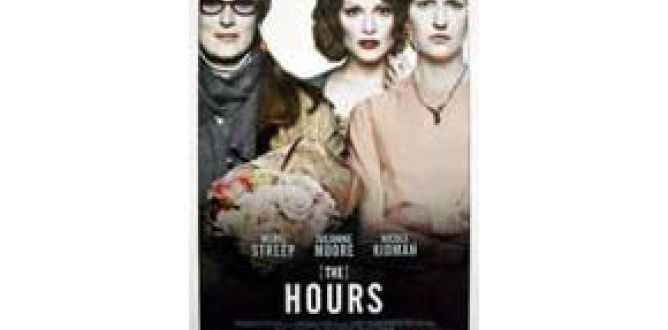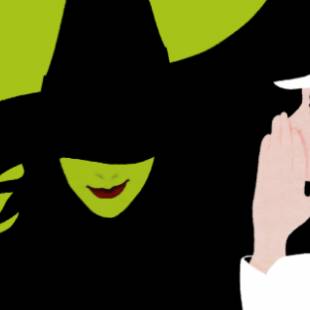The Hours Parent Guide
Parent Movie Review
The Hours gives us a day in the lives of three women, in three different places, during three different time periods—-all influenced by one book. Yet it fails to resolve itself into one single conclusion.
In the 1920s, author Virginia Woolf (Nicole Kidman) struggles to find the words to pen her latest book, Mrs. Dalloway. Fighting the internal demons of depression that plague her life, she works at a feverish pace until dark thoughts of death and despair cloud her mind. The quietude of her London suburban home, meant to calm her nerves, makes her edgy and desperate for the creative stimulation of the English capital. This longing to return puts a strain on her relationship with her husband, Leonard (Stephen Dillane).
Unhappy in a seemingly perfect post World War II marriage, Laura Brown (Julianne Moore) is a young, middle class housewife in the 1950s. She pays little attention to her son, Ritchie (Jack Rovello), choosing instead to pour through the pages of Woolf’s novel. On the day of her husband’s (John C. Reilly) birthday she pulls herself out of the book long enough to bake a cake. But when a close friend (Toni Collette) reveals a serious personal problem, the pregnant Laura contemplates the course her own life is taking.
Clarissa Vaughan (Meryl Streep), an ultimately modern woman, is a New York editor in the year 2001. Affectionately called ?Mrs. Dalloway? by her former lover Richard (Ed Harris), who is afflicted by AIDS, she fills her day with last minute party preparations to celebrate his recent literary award. Accused of having a trivial existence filled with sad friends, Clarissa nevertheless puts her own life on hold, including the lesbian relationship with her partner Sally (Allison Janney) and her mothering role to her daughter, Julie (Claire Danes), in order to nurse her dying friend.
Hounded by feelings of repression and confinement, each woman longs for a freedom she thinks is just beyond her grasp—-a freedom from restrictions, family responsibilities and the decisions of the past. Pursuing a path she hopes will bring happiness, each succeeding generation experiences the softening of social mores and the changing of values. But despite the increased lifestyle options, consequences for choices still follow like a silent shadow.
While the transformation of Nicole Kidman’s nose may be getting more attention than it deserves, this film is well edited and beautifully filmed, peeling away the layers of anguish and restlessness that each woman faces. But parents of teens, especially those suffering from depression or sexual orientation issues, should be warned of the graphic depictions of suicide, male and female homosexual relationships (including several on-screen kisses) and the misuse of prescription drugs. The film also contains a strong sexual expletive and profanities.
As the dark minutes of their days (and the film) slowly tick away, these discontented women find the happiness they seek is just as elusive as the point this movie is trying to make.
Starring Nicole Kidman, Julianne Moore, Meryl Streep. Running time: 114 minutes. Theatrical release January 17, 2003. Updated July 17, 2017The Hours Parents' Guide
Richard accuses Clarissa of living a trivial life. What activities may seem trivial to one person but important to another?
Every choice comes with consequences. What choices did each woman make that brought her happiness? What choices contributed to her unhappiness?
Home Video
Related home video titles:
The long-term consequences for choices are also the theme of Riding In Cars With Boys and Broke Down Palace. Like The Hours, these films contain content issues that may concern some parents.


